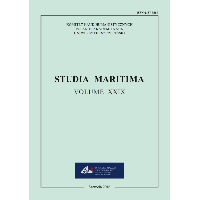U kresu zimnej wojny – brytyjska ocena relacji z ZSRR i państwami Europy Środkowo-Wschodniej w 1988 roku
At the End of the Cold War – The British Opinion about the Relations with the Ussr and The States of Central and Eastern Europe in 1988
Author(s): Paweł LeszczyńskiSubject(s): International relations/trade, Post-War period (1950 - 1989), Cold-War History, Geopolitics
Published by: Wydawnictwo Naukowe Uniwersytetu Szczecińskiego
Keywords: Great Britain; Soviet Union; Central and Eastern Europe; Cold War; British Foreign Policy;
Summary/Abstract: The article presents the concept of the British foreign policy towards the states of Central and Eastern Europe, made by Foreign Secretary Geoffrey Howe at the end of 1980s, when the cold war was just about to be over. He was Secretary of State for Foreign and Commonwealth Affairs in the cabinet of Margaret Thatcher. The foreign policy of the United Kingdom towards the states of Central and Eastern Europe at that time was shaped by several important factors; for example: the geopolitical position, the alliance with the USA, the other NATO member-states and the remaining capitalist countries, the reforms introduced by Mikhail Gorbachev (especially the so-called perestroika, glasnost and ‘New Thinking’) and their significance for international relations. The author pays a special attention to the British policy of ‘diversification’ within the Soviet bloc at that time. On the one hand there were countries that were introducing the reforms implemented in the USSR (Poland and Hungary); on the other, there were states of ‘old regime’, without any signs of liberalisation, such as Romania, the German Democratic Republic, or Bulgaria.
Journal: Studia Maritima
- Issue Year: 29/2016
- Issue No: 1
- Page Range: 217-233
- Page Count: 17
- Language: Polish

